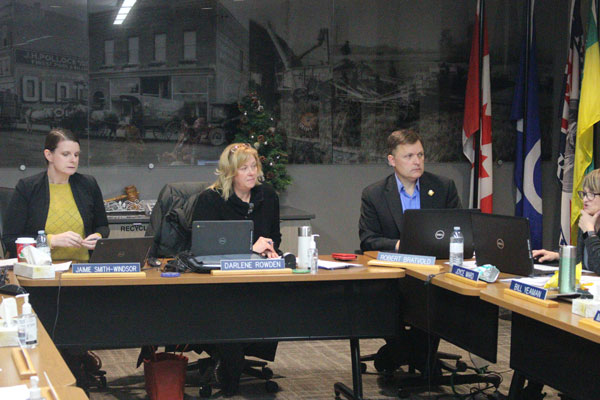
Sask. Rivers board chair says school division budget will have to be cut to manage inflationary pressures
Sask. Rivers board chair Darlene Rowden said there was at least one positive for school divisions in Wednesday’s provincial budget, but that won’t be enough to offset the challenges posed by inflation.
The province announced $2.04 billion in school operating funding in their 2023-24 budget on Wednesday. Sask. Rivers board chair Darlene Rowden said that spending won’t be enough to account for a second consecutive year of inflationary pressures, and that’s going to great challenges for the school board budget.
“For Sask Rivers, it’s not great to be honest you,” Rowden said. “I mean, there was one positive in it, but overall it’s not going to cover inflation for Sask Rivers. Significantly, it is short for covering those pressures.”
The province has increased education funding by $192.8 million for 2023-24 to support prekindergarten to Grade 12 schools, early learning, child care, and school libraries. That marks a 6.7 increase over the previous year.
Saskatchewan’s 27 school divisions will receive $2.04 billion in school operating funding for the 2023-24 school year, an increase of $49.4 million or 2.5 per cent compared to the 2022-23 budget.
Rowden said that Chief Financial Officer Jerrold Pidborochynski still has to study the numbers to see how they will get to a balance.
“I get that the government is investing more money in education right—that pot as a whole—but they’re also counting the new builds and high school builds and stuff in that. That doesn’t affect our operations budgets and Sask Rivers isn’t getting any of those builds either,” Rowden explained.
Saskatchewan Rivers has not made the final cut for new builds for a decade. However, Prince Albert itself is included with a new K-12 Francophone school to replace École Valois and renovations to St. John Community School.
Rowden said the province isn’t going to help school board cover inflation, which means they’ll have to trim their own budget to make things fit.
“We have to find it in our budget, so what does that mean? Cuts somewhere,” Rowden said. “We are still going through the package that they send our CFO.”
The province is also providing $7 million to school divisions to retain the more than 200 Educational Assistants who have been hired since September 2021. This is part of the government’s ongoing commitment to support diverse student and classroom needs.
Sask Rivers was able to hire around 10 educational assistants thanks to that funding. Last year, those funds were extras, but this year it’s built into the provincial budget.
Rowden said Sask. Rivers is grateful for the support, but she’s worried the province is micromanaging school divisions.
“The only thing that bothers us about that is they’re dictating to boards how they can spend their money,” she explained. “That really starts to erode locally autonomy and who knows best where dollars need to be spent in education using closest to home.”
Rowden said that when Premier Scott Moe announced additional funding for Rural Municipalities at the SARM Convention there were no strings attached. She added that additional funding is important for RMs because they do important work as well but the funding did not come with strings
“It’s good that they recognize the value of them, but it’s also challenging in that this is not part of the ongoing budget. It is still a separate line and it’s still challenging that it’s conditional. I guess it’s a striking difference between what some of some other organizations in the province have been told around their funding,” Rowden said.
Sask. Rivers education director Robert Bratvold agreed with Rowden on the strings attached nature of the funding.
“It’s a little bit of a striking difference when it seems to assume that the ministry knows better what to do for students in classrooms by making funding conditional,” he said. “It’s just challenging when the ministry implies that their funding is or their decision around funding are more informed than what local voice would suggest.”
Bratvold added that they were thankful for the funding and concerned it might disappear.
“That would be tragic because we’ve hired with additional funding and a great service, and do great things for kids and schools and families,” he explained.
The province took a different attitude in their own release around education funding.
“As Saskatchewan’s economy grows our government is making significant investments in our children’s future through education, child care and libraries,” Education Minister Dustin Duncan said.
“We are ensuring students have access to high quality education no matter where they live in the province, families are supported with accessible, affordable child care, and libraries can continue to offer meaningful services, particularly to our rural communities. That’s growth that works for everyone.”
michael.oleksyn@paherald.sk.ca

